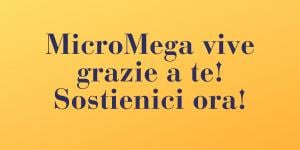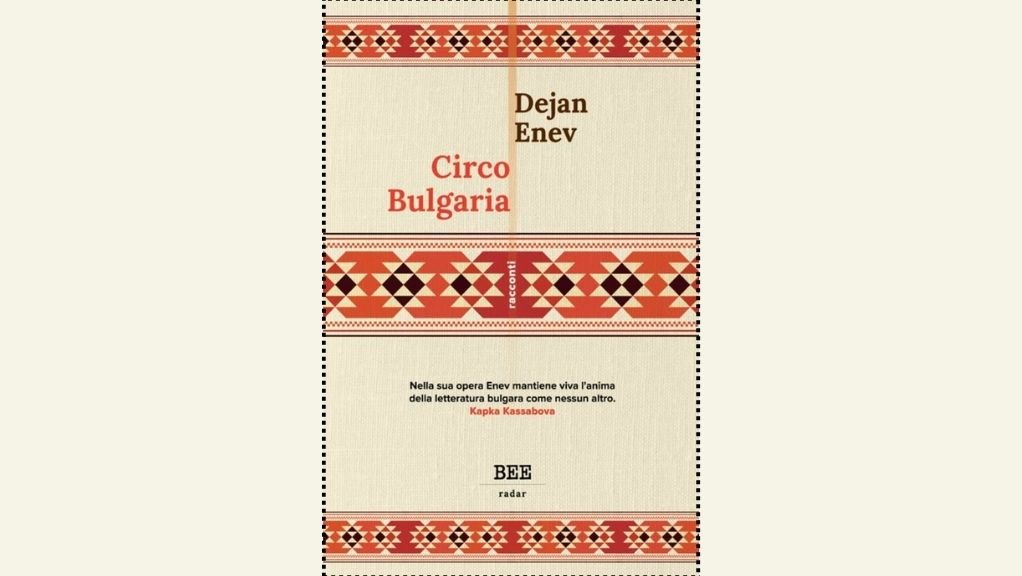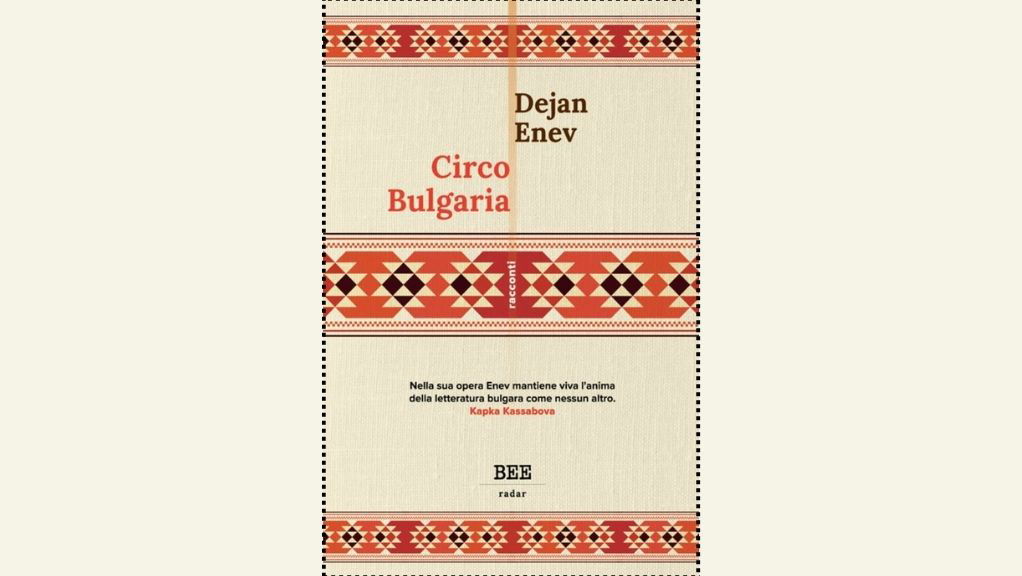Dejan Enev, author of “Circo Bulgaria” (Bottega Errante Edizioni, 2023), is one of the best-known and most translated Bulgarian writers abroad and, in all his stories, set in mental hospitals, ruined barracks and remote peaks, offers a very vivid picture of the society and political unrest that has affected his country from 1989 to the present day.
Roberto Rosano
Mr. Enev, Italian readers do not read much history, except for Calvino, Fenolio, Ginzburg…
But you have Alberto Moravia, who is one of the greatest storytellers. I have re-read yours several times Roman storiesand in both Chekhov and Moravia I cannot grasp the secret of their narrative…
Do Bulgarians love stories?
In our literature, history is truly a milestone. Certainly among the greatest representatives of the genre are Elin Pelin and Jordan Jovkov, who with their presence mark the 150-year history of modern Bulgarian literature.
What do you like about this form of writing?
When I started writing, fifty years ago, it was almost natural to gravitate towards short stories. I have currently published 25 books, two-thirds of which are unpublished stories. For me, writing short stories is very different from writing novels. The latter require inspiration, reflection and some underlying meaning… Story, in my opinion, comes much closer to the immediacy of poetry.
Does he write immediately, on impulse, or is he thoughtful?
I write them immediately, as soon as I have an idea in my head… That’s probably how I wrote my best lyrics.
What do you think of modern Bulgarian literature? Are there any authors who have influenced you?
Surely every writer learns from the greats who came before them. I have already mentioned Alberto Moravia and Alessandro Baricco is also a writer I really like.
And why do you like Baricco so much?
When I first read him – many of his works have been translated into Bulgarian – I picked up all the books I could find and read at least six of them. He belongs to the rare category of “chameleon writers”, those writers who change with each work. In Bulgarian literature we have a similar writer, Galin Nikiforov, who secluded himself in his hometown of Dobrich to write more and more beautiful books. If I had to list the great names of the short story, I would say Isaac Babel, Salinger, Hemingway – writers you can constantly re-read and in whom you can always find something new, because a writer is trained in the great masters and in no other way.
In the original writing that opens the collection Circus Bulgariathere is a reference to Pavel Florenskij, in royal doors … He says that it is not always possible to have a direct view of things. It looks like a little poetic manifesto of intention and writing… Is it so?
Yes, it certainly could. In fact, in this passage he talks about an inconsistent divine light, and how thought is faster than light, and what helps literature to be so. I remember a conversation with a writer from here who is no longer with us, Doncho Tsonchev. We were talking about what, with time and experience, inevitably happens to every writer: if you write and describe clearly, for example, love scenes, you create a kind of pornography, while love and all that is important to be said and done happens » even through the silences between the words. In this sense, I believe that what remains a mystery has an extremely powerful evocative power… The unspeakable, what is not fully expressed fascinates me.
The children who inhabit his stories seem to have a wisdom of their own, a very deep imaginative power. What is your relationship with childhood and what is your idea of it?
I am convinced that childhood is one of the greatest sources of inspiration for an artist, because it is inexhaustible. Because in childhood everything is a game, imagination has no limits and there is no fear of death. That’s why I like to insert images taken from my childhood and thus return to mine, which was very beautiful and rich: I lived in the country until I was 7, with my twin brother. We took long walks in the village. A life that children today almost ignore, a life that now almost doesn’t exist anymore.
Animals are also at the center of many of his stories (Coco, From the life of hedgehogs, Wedding)…
Since we mentioned Jovkov, I will add that it is said to be one of his best short story collections If only they could talk. Knowing and being close to animals is another important element that a writer should be interested in. Animals also hide many secrets, we can say that they also hide a soul, they experience very interesting emotions. For twenty years I had a cat, Zara, and once, when we called the vet to the house, I asked him: “Can we say that animals have souls?” And he replied: “Well, maybe it’s a little too much.” But Zara seemed to deny it.
And his women are always at the same time misunderstood, isolated but also very determined. Zornica Popova inside PuppetStana Varlačka in MarriageMary inside Mario. I was wondering: how did the role of women in Bulgaria change after the fall of the Berlin Wall?
Relationships are completely normal, at least in my opinion, I have no special remarks about it. They have a career, achieve their goals and are sometimes very dynamic and combative. Leaving home very early in the morning, around 5 or 6, you find mostly women on the streets of Sofia. They head to work and are highly valued because they are much more durable than men, the most robust part of the human race. I am convinced that the existence and everyday life of Bulgaria is mainly supported by women, and in the difficult years of post-socialist changes it was they who brought these people of ours to the other side, safe and sound, somehow.
Do some of the images in your lyrics come from your experience as a hospital aide?
Absolutely yes. I did a whole series of “practices” in the psychiatric hospital in Sofia and there I saw real things that over the years helped me to create good texts. Some scenes are memorable, but probably my best lines are in the long “Morgue”, a result of my long experience in a morgue. In general, a writer uses what he has experienced… Working as an assistant was a rich source of inspiration for me.
These stories give the reader the feeling of being out of time, but then there is a detail that makes us understand what era we belong to. A certain contrast between open-closed, day-night, urban-rural is perceived
I think the creative process is always a big enigma, not subject to any kind of organization. While writing, a writer is not aware of many of the things that come out in the text that then surprise him during the rereading phase. I remember one of my stories about a circus, not “Circo Bulgaria”, but another one, in which I proved that I possessed knowledge that I did not know I had about this art. Because, as Pasternak also says, the writer, while writing, does half his work. the other half is performed by the language it uses. Works are born from this intersection of talent and language.
Some stories, for example beyond the mountains, they have a very cinematic approach. I imagine they had some adaptations for the small and large screen…
Yes, at least ten of my stories have been adapted and made into short films, some more successful, some less so. A few years ago, I even did location crawlers for these movies. It was a lot of fun to see my idea materialized in the work of another person, a creative team… It’s an interesting feeling…
His stories live in a strange lime… They talk about dramas, but they are not dramatic. where you should cry, you end up laughing, where you should laugh, you feel great sadness. Bulgaria is similar this lime?
I’m not really sure how to answer that. I never looked for special effects. But obviously the most powerful and successful works are those where there is both laughter and crying at the same time, because they stimulate a large part of the spectrum of the reader’s emotions. But I’ll say it again: when you write, you don’t set yourself the specific goal of making people laugh or cry. The text, at some point, begins to move on its own. All it takes is patience and persistence to move on and let it go.
Why do you play with character names and surnames so much? He learned it from the Russians, from Dostoyevsky, from the provinces…
In the early years of high school I remember we started a small, somewhat playful literary club. That’s where I learned to joke like that, I realized I could like it. My friends liked it. So I started doing it in my projects as well.
TRANSLATED FROM THE BULGARIAN BY GIORGIA SPADONI
Did you like this article?
To continue bringing you quality content, MicroMega needs your support: DONATE NOW.



